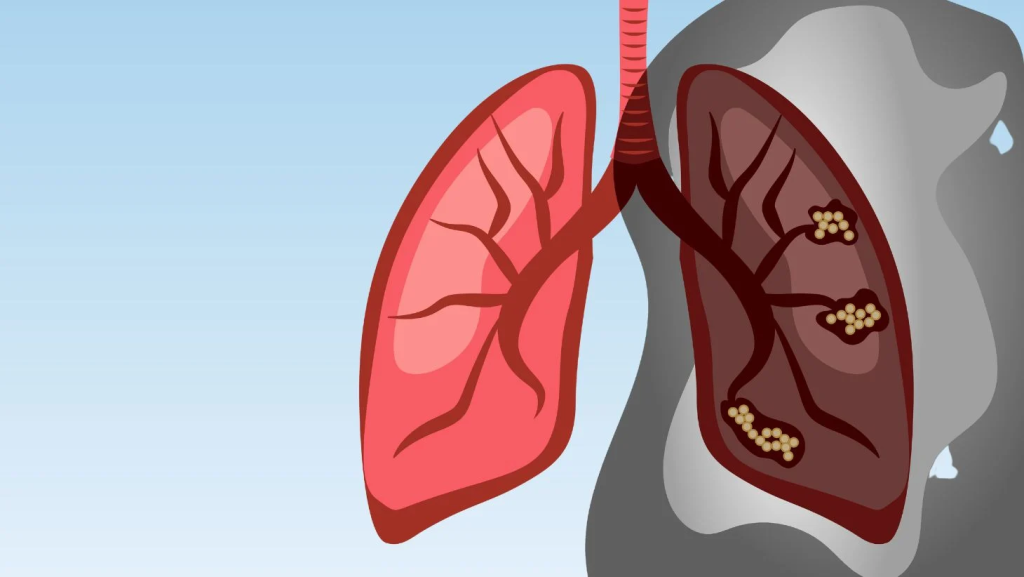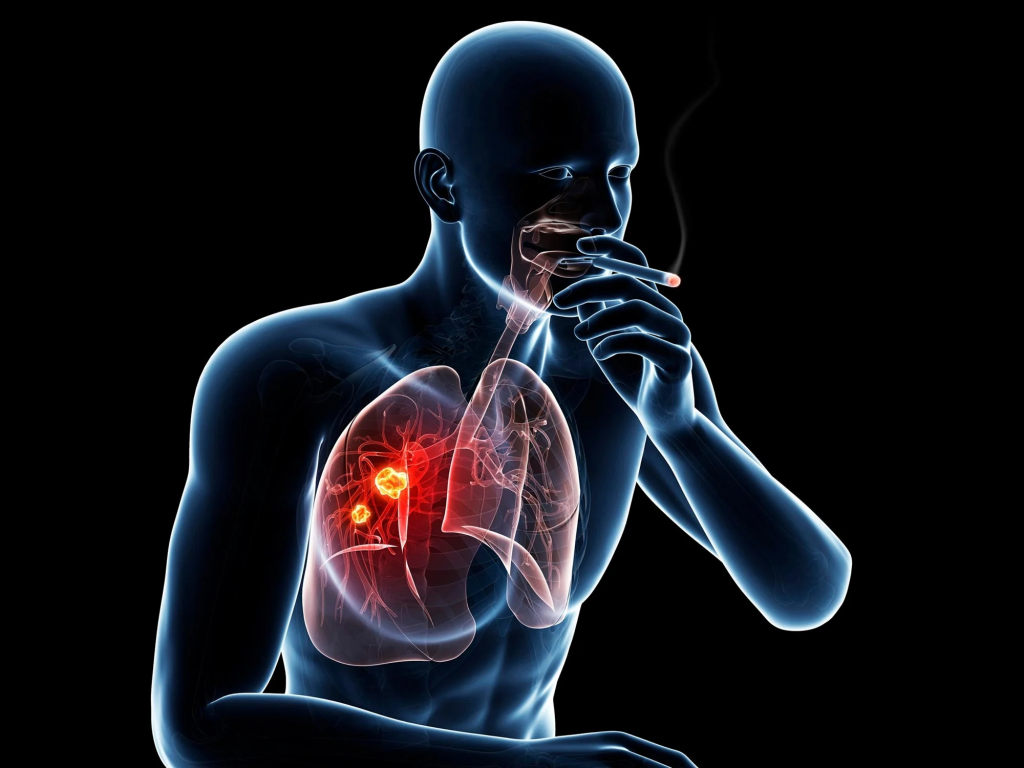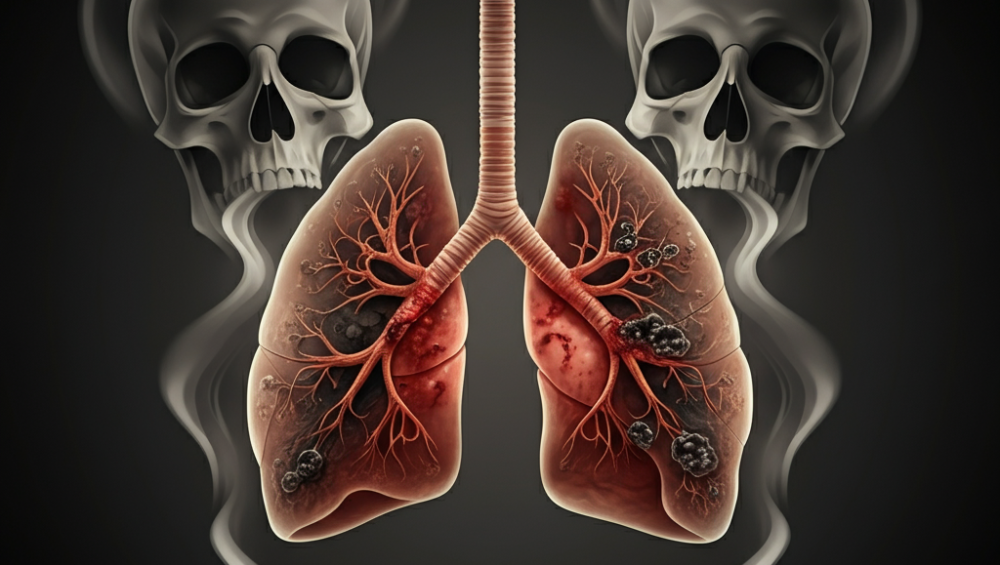Lung cancer is one of the leading causes of cancer-related deaths worldwide, and smoking is among its most significant risk factors. Whether you’re a smoker, a healthcare professional, or someone simply trying to make informed decisions about their health, understanding the connection between smoking and lung cancer is essential.
This article explores how smoking impacts your lung health, the different types of lung cancer, and how you can reduce your risk. It’s time to shed light on the facts and make empowered choices for a healthier future.
What is Lung Cancer?
Lung cancer occurs when cells in your lungs grow uncontrollably, forming tumors that interfere with normal lung function. Over time, these tumors can spread to other parts of the body, creating complications that are difficult to treat.
The Global Impact of Lung Cancer
Lung cancer is a critical public health concern. According to the World Health Organization (WHO), lung cancer accounts for 1.8 million deaths annually—making it one of the most challenging types of cancer to combat. What makes it even more alarming is that it’s often diagnosed in the late stages, when treatment options are limited.
Types of Lung Cancer

Lung cancer is broadly categorized into two types:
- Non-Small Cell Lung Cancer (NSCLC): This accounts for about 85% of all lung cancer cases and is typically slower-growing.
- Small Cell Lung Cancer (SCLC): Less common but more aggressive, SCLC spreads rapidly and is often linked to heavy smoking.
Understanding these types helps in grasping how smoking plays a role in the disease’s progression.
How Smoking is Linked to Lung Cancer
The connection between smoking and lung cancer is clear and well-documented. Tobacco smoke contains over 7,000 chemicals, many of which are carcinogens (substances capable of causing cancer).
What Happens When You Smoke?
When you inhale cigarette smoke, harmful chemicals like benzene, arsenic, and formaldehyde enter your lungs. These substances damage the DNA in your lung cells, increasing the likelihood of mutations that can lead to cancer.
Key Statistics
- According to the Centers for Disease Control and Prevention (CDC), 80-90% of lung cancer cases are caused by smoking.
- Smokers are up to 30 times more likely to develop lung cancer compared to non-smokers.
- Although quitting smoking significantly reduces your risk, former smokers remain at a higher risk compared to those who have never smoked.
Secondhand Smoke Is Just as Harmful
Even if you don’t smoke, prolonged exposure to secondhand smoke can increase your risk of lung cancer by up to 30%. This highlights the importance of creating smoke-free environments for everyone.

Other Risk Factors for Lung Cancer
While smoking is the leading cause, other factors can also contribute to lung cancer risk, such as:
- Genetics: A family history of lung cancer can predispose individuals to the disease.
- Radon Gas: This naturally occurring gas can build up in homes and is the second-leading cause of lung cancer, especially in non-smokers.
- Air Pollution: Prolonged exposure to polluted air, including particulate matter and industrial emissions, is linked to increased lung cancer risk.
- Occupational Hazards: People exposed to asbestos, diesel exhaust, or other carcinogens in their workplace are more vulnerable.
Smoking’s Impact Beyond Lung Cancer
While lung cancer is a significant concern, smoking harms nearly every organ in the body.
Heart Disease
Smoking doubles your risk of heart attack and cardiovascular disease by damaging blood vessels and reducing oxygen levels in your blood.
Respiratory Issues
Smoking leads to chronic obstructive pulmonary disease (COPD), a progressive condition that makes breathing difficult. Chronic bronchitis and emphysema are common complications.
Other Types of Cancer
Beyond the lungs, smoking raises the risk for cancers of the mouth, throat, esophagus, bladder, kidney, and pancreas, among others.
Steps to Reduce Your Risk
The good news is that it’s never too late to reduce your risk of lung cancer. Here’s how you can take charge of your health today.
1. Quit Smoking
For current smokers, quitting is the most effective step you can take. Studies show that your lung health begins to improve within weeks of quitting, and the risk of cancer decreases over time.
If you need support, there are resources available, including nicotine replacement therapies, counseling, and online quit-smoking programs.
2. Avoid Secondhand Smoke
Protect yourself by staying away from environments where smoking is prevalent. Advocate for smoke-free zones in public spaces and workplaces.
3. Test Your Home for Radon
You can purchase a radon test kit or hire a professional to ensure your living space is safe.
4. Maintain a Healthy Lifestyle
Eating a balanced diet rich in fruits and vegetables and staying physically active boosts your immune system, supporting your body’s ability to fight off disease.
5. Regular Screenings
If you’re a smoker or at high risk for lung cancer, talk to your doctor about annual low-dose CT scans. Early detection increases the likelihood of successful treatment.
Spread the Word and Protect More Lungs
Lung cancer is devastating, but many cases are preventable. By understanding the link between smoking and cancer, we can take meaningful steps for ourselves and encourage loved ones to make healthier choices.
If you’re a smoker, seeking support to quit could be the best decision you’ll make for your health. And if you’re not, you can help by spreading awareness, advocating for smoke-free spaces, and supporting those on their quitting journeys.
To learn more, explore these trusted resources and take that first step toward prevention or early detection.




